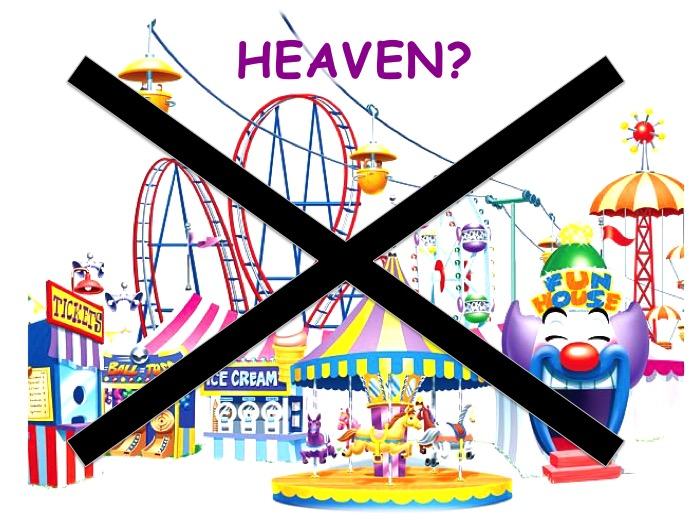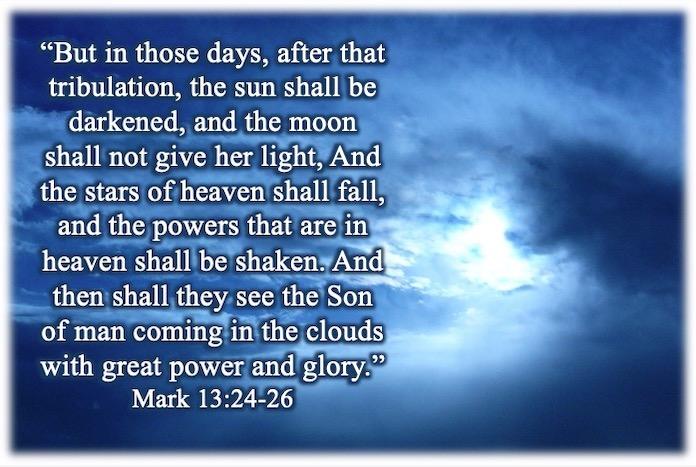A Bible Study On Corrupt Communication And Minced Oaths
Minced oaths are a prime example of hypocrisy… using the Lord’s name in vain in a way that tries to hide the fact that this is what is being done. The following Bible study will delve into this matter in more detail.
Does it really matter what we say or how we talk?
If you are a genuine Christian, born of the Holy Spirit, then you know very well that our speech matters and that what we say should glorify God and edify others. These Bible verses – and many others – make that quite clear:
2 Peter 3:14 – “Wherefore, beloved, seeing that ye look for such things, be diligent that ye may be found of him in peace, without spot, and blameless.”
Matthew 12:36 – “But I say unto you, That every idle word that men shall speak, they shall give account thereof in the day of judgment.”
1 Thessalonians 5:22 – “Abstain from all appearance of evil.”
What is the harm in substitutes for curse words?
If we better understand what curse words are all about we should have a better idea of why we should not want to avoid all appearances of evil:
Even a secular English dictionary has this to say about curse words:
- a profane, obscene, or plashpemous oath, imprecation, etc. expressing hatred, anger, vexatioin, etc.
Some definitions of terms:
expletive: a syllable, word, or phrase inserted to fill a gacancy without adding to the sense or an exclamatory word or phrase; especially one that is obscene or profane
euphemism: the substitution of an agreeable in inoffensive expression for one that may offend or suggest something unpleasant
slang: an informal nonstandard vocabulary composed typically of coinages, arbitrarily changed words, and extravagant, forced, or facetious figures of speech
blaspheme: to speak irreverently or profanely of or to God or sacred things.
987 blasphemeo {blas-fay-meh’-o}
from 989; TDNT – 1:621,107; v
AV – blaspheme 17, speak evil of 10, rail on 2, blasphemer 1, speak blasphemy 1, blasphemously 1, misc 3; 35
1) to speak reproachfully, rail at, revile, calumniate, blaspheme
2) to be evil spoken of, reviled, railed at
Some common substitutes for curse words:
gee, geez, gee-wiz: euphemism for Jesus – used as an introductory expletive or to express surprise or enthusiam
golly, gosh: an exclamation of surprise, etc.: a euphemism for God.
oh my God: an obvious use of the Lord’s name in vain.
my Lord: another obvious use of the Lord’s name in vain.
darn: a euphemism for damn.
my heavens: What do you think this expression relates to? “The heavens declare the glory of God” (Psalm 19:1)
my word: where do you think this expression came from? … “In the beginning was the Word, and the Word was with God, and the Word was God.” (John 1:1)
How serious is this matter to God?
What does the Bible say?…
Psalms – 74:10 – “O God, how long shall the adversary reproach? shall the enemy blaspheme thy name for ever?”
Do we want to be counted among God’s enemies?
What does the Bible say?…
Psalms 74:18 – “Remember this, that the enemy hath reproached, O LORD, and that the foolish people have blasphemed thy name.”
Do we want behave like foolish people (i.e. the lost)?
What does the Bible say?…
Revelation 16:11 And blasphemed the God of heaven because of their pains and their sores, and repented not of their deeds.
Should we resort to complaining and blaspheming God, like the heathen do when they have pain or problems?
What does the Bible say?…
Leviticus 24:16 – “And he that blasphemeth the name of the LORD, he shall surely be put to death, and all the congregation shall certainly stone him: as well the stranger, as he that is born in the land, when he blasphemeth the name of the LORD, shall be put to death.”
If God hates His holy name be blasphemed, why would a true child of His want to mimic those who commit this grievous offence upon our blessed God and Father?
Matthew 15:18 – “But those things which proceed out of the mouth come forth from the heart; and they defile the man. 19 For out of the heart proceed evil thoughts, murders, adulteries, fornications, thefts, false witness, blasphemies”
Perhaps we should examine ourselves to see if we are in the faith, if we are acting more like the world than like a new creature in Christ:
2 Corinthians 5:17 – “Therefore if any man be in Christ, he is a new creature: old things are passed away; behold, all things are become new.”
2 Peter 2:10 – “But chiefly them that walk after the flesh in the lust of uncleanness, and despise government. Presumptuous are they, selfwilled, they are not afraid to speak evil of dignities.”
Are we not speaking evil of the greatest of all Dignitaries (the King of Kings and Lord of Lords), when we take his name lightly by using it as a sanitized, Christianized swear word?
Philippians 2:14 – “Do all things without murmurings and disputings”
Are we using minced oaths at times when we are expressing displeasure with some situation or some person, when we should be doing things without murmuring and instead, giving thanks in everything?
Didn’t the apostle Paul explain to Timothy, whom he discipled, that blaspheming God was something we should not do and something to tell others not to do?…
1 Timothy – 1:20 “Of whom is Hymenaeus and Alexander; whom I have delivered unto Satan, that they may learn not to blaspheme.”
James 2:7 – “Do not they blaspheme that worthy name by the which ye are called?”
2 Kings 19:22 – “Whom hast thou reproached and blasphemed? and against whom hast thou exalted thy voice, and lifted up thine eyes on high? even against the Holy One of Israel.”
Isaiah 52:5 – “Now therefore, what have I here, saith the LORD, that my people is taken away for nought? they that rule over them make them to howl, saith the LORD; and my name continually every day is blasphemed“.
1 Corinthians 2:12 – “Now we have received, not the spirit of the world, but the spirit which is of God; that we might know the things that are freely given to us of God.”
The spirit of the world wants to take God’s name in vain but not only that. Oftentimes the world wants to sin in a way that does not appear to be outright sin, if they think it is to their advantage to appear better than they are.
Mark 16:17 – “And these signs shall follow them that believe; In my name shall they cast out devils; they shall speak with new tongues“;
John 12:43 – “For they loved the praise of men more than the praise of God.”
What is the purpose of using words that sound like swear words?
What is the purpose of using exclamations that sound like the Lord’s name?
Perhaps we like to sound like the world but “not quite as bad”. The world uses words to express shock or display their displeasure over some person or situation. A believer should be giving thanks in all situations:
Ephesians 5:19 – “Speaking to yourselves in psalms and hymns and spiritual songs, singing and making melody in your heart to the Lord; 20 Giving thanks always for all things unto God and the Father in the name of our Lord Jesus Christ;”
Colossians 1:10 – “That ye might walk worthy of the Lord unto all pleasing, being fruitful in every good work, and increasing in the knowledge of God; 11 Strengthened with all might, according to his glorious power, unto all patience and longsuffering with joyfulness; 12 Giving thanks unto the Father, which hath made us meet to be partakers of the inheritance of the saints in light”
Colossians 3:16 – “Let the word of Christ dwell in you richly in all wisdom; teaching and admonishing one another in psalms and hymns and spiritual songs, singing with grace in your hearts to the Lord. 17 And whatsoever ye do in word or deed, do all in the name of the Lord Jesus, giving thanks to God and the Father by him.”
If we are not spending quality time in the Word, how can we do these things?
Colossians 4:5 – “Walk in wisdom toward them that are without, redeeming the time. 6 Let your speech be alway with grace, seasoned with salt, that ye may know how ye ought to answer every man.”
Ecclesiastes 12:10 – “The preacher sought to find out acceptable words: and that which was written was upright, even words of truth.”
Ecclesiastes 10:14 – “A fool also is full of words: a man cannot tell what shall be; and what shall be after him, who can tell him?”
Ecclesiastes 5:2 – “Be not rash with thy mouth, and let not thine heart be hasty to utter any thing before God: for God is in heaven, and thou upon earth: therefore let thy words be few.”
Proverbs 29:20 – “Seest thou a man that is hasty in his words? there is more hope of a fool than of him.”
Proverbs 17:27 – “He that hath knowledge spareth his words: and a man of understanding is of an excellent spirit.”
Proverbs 10:19 – “In the multitude of words there wanteth not sin: but he that refraineth his lips is wise.”
Psalms 12:6 – “The words of the LORD are pure words: as silver tried in a furnace of earth, purified seven times.”
Colossians 3:8 – “But now ye also put off all these; anger, wrath, malice, blasphemy, filthy communication <148> out of your mouth.
- 148 aischrologia {ahee-skhrol-og-ee’-ah}
- from 150 and 3056;; n f
- AV – filthy communication 1; 1
- 1) foul speaking, low and obscene speech
2 Timothy 3:2 – “For men shall be lovers of their own selves, covetous, boasters, proud, blasphemers, disobedient to parents, unthankful, unholy
— RM Kane
SEE ALSO: Swearing For Christians & Minced Oaths




